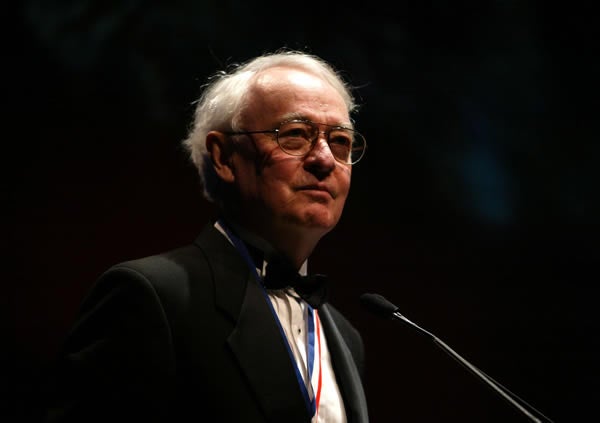Remembering James Q. Wilson
Ed Feulner /
When President George W. Bush presented James Q. Wilson with the Presidential Medal of Freedom, our nation’s highest civilian award, he said that whatever the subject, Professor Wilson “writes with intellectual rigor, with moral clarity, to the appreciation of a wide and growing audience.” Jim’s passing this morning at age 80 robs us of an intellectual giant, but we find solace in knowing that his legacy lives on.
Jim was a great teacher, a good man, and a longtime friend. For many years he told the truth and taught the truth against the liberal tide at major American universities and venues around the world.
He was best-known for his “broken windows” theory—that paying attention to little crimes like drug dealing on street corners, prostitutes on parade, petty vandalism, can have an enormous impact on big crimes as well.New York City’s police commissioner credited Jim with providing a key concept in the campaign to reduce crime in American cities.
But Jim Wilson was far more than a criminologist or an esteemed political scientist. He was a political philosopher with a deep understanding of the forces that have madeAmericaa unique democracy.
In accepting the Bradley Prize from the Lynde and Harry Bradley Foundation, Jim explained that what makes the United States unique is the people’s commitment to limited government, free expression, and equal justice for all.
The American character, he said, is rooted in the Declaration of Independence and the U.S. Constitution, which provide the philosophical and political structure for America’s special contribution to governance—the reconciliation of liberty and order.
We will miss Jim Wilson deeply, but his profound insights into the American character and American governance remain with us.

